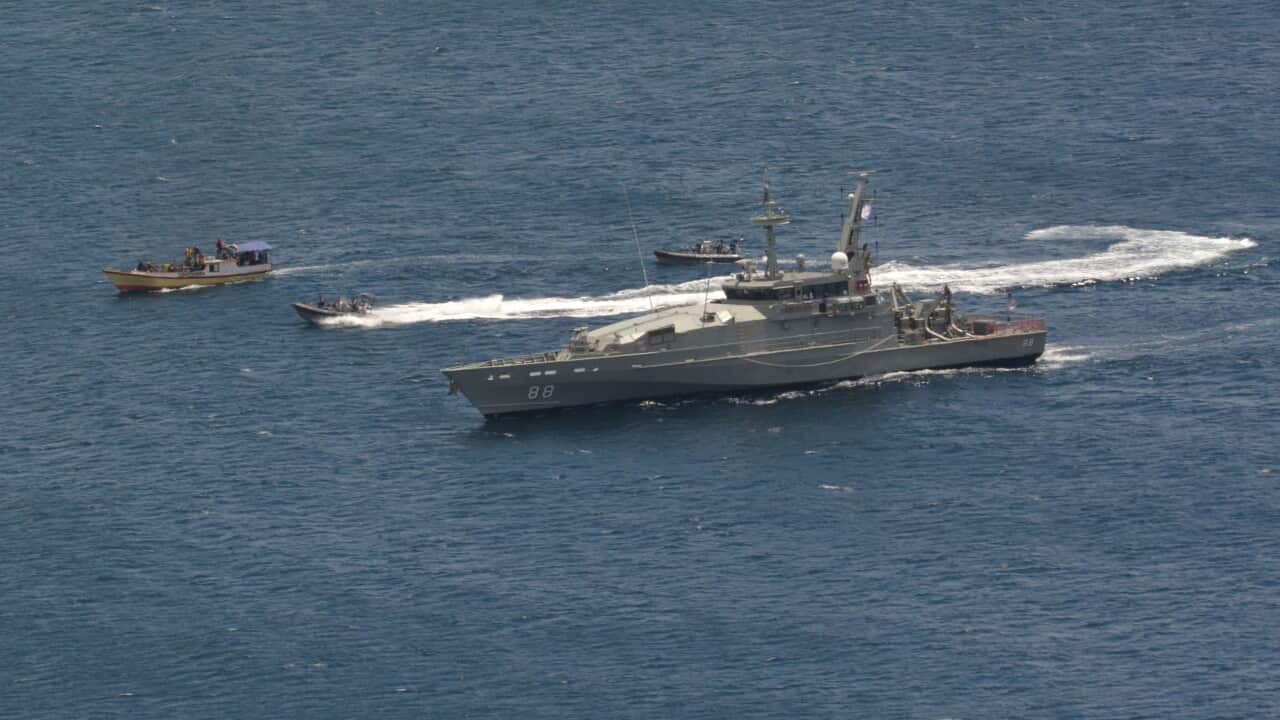(Transcript from World News Australia Radio)
The federal government says there's been a significant decline in the number of asylum seeker boat arrivals under its new Operation Sovereign Borders policy.
It says only 215 asylum seekers have been transferred to Australia's overseas detention centres after arriving on boats in the past three weeks.
And it's claiming success in the fight against people smugglers in Indonesia.
Naomi Selvaratnam has the details.
(Click on audio tab above to listen to item)
Immigration Minister Scott Morrison has told his latest weekly briefing on Operation Sovereign Borders that the government's policies are working.
He says just one asylum seeker boat has arrived in the past week.
Mr Morrison is refusing to reveal the nationalities of those aboard the boat, intercepted near the Indian Ocean territory of the Cocos Islands.
However, in answer to a question about the boat, the Minister specifically talked about asylum seekers from Sri Lanka.
"I should stress that anyone who would have come from somewhere like Sri Lanka would face the same, and I strongly suggest even more stringent process of screening and screen-out. And those who are screened out will go back to Sri Lanka, and so anyone who may have come from Sri Lanka should know that they will go back to Sri Lanka. We have an arrangement with the Sri Lankan government and this government will certainly be taking that arrangement very seriously and will be ensuring that we maximise those who go back and preferably they will all go back."
Mr Morrison says in line with the government's policies those aboard the boat intercepted near the Cocos Islands are being transferred to the Australian detention centre on Manus Island, in Papua New Guinea.
The Minister is continuing a policy of tightly-controlled information about the Manus centre, and the other Australian detention centre on Nauru.
He's refusing to comment on recent reports of asylum-seekers harming themselves in the detention centres, again using what's become the often-repeated phrase of 'operational reasons'.
"Obviously I get reports on these things and they're matters operational and for this reason - you won't hear this government giving oxygen to that type of behaviour, because it runs the risk of endorsing that behaviour or encouraging that behaviour. So that is not something you'll hear me discussing at these briefings because it doesn't help those who are running the centres."
Australian Federal Police Commissioner Tony Negus told the briefing that co-operation with Indonesia has resulted in 17 people-smuggling attempts being halted in the past month.
He says this has prevented more than 500 suspected asylum-seekers from making boat journeys to Australia.
Mr Negus says eight alleged people smugglers had been arrested in Indonesia, among them three high-profile individuals.
He says the arrests are a significant breakthrough in the government's attempts to curb people smuggling.
"These are people who are facilitators and organisers within Indonesia who put people on those boats to start with these people are yet to go to court but will be charged with multiple ventures and organising multiple ventures to this country. Also importantly, just yesterday, they issued an arrest warrant for a very significant people smuggler in Indonesia who will be tracked down in coming weeks and should appear in court very soon, we hope."
Mr Negus says the progress he's claiming in the fight against people smugglers is due in part to more AFP officers being sent to Indonesia - and to co-operation from the Indonesian authorities.
"Suffice to say that we have doubled the number of people AFP officers in that location are now working everyday with their colleagues, their Indonesian counterparts providing support, providing intelligence and providing operational expertise in the context of how these operations should be run and I've got to say that the indonesians are stepping up to the plate and doing a very good job. One of the things that has changed is the level of funding support that we are working through to ensure that the federal police and the other agencies that are working in the region have the resources that they need to do this job."









